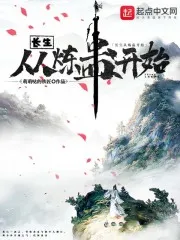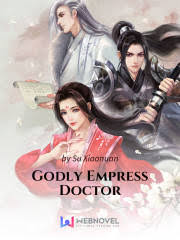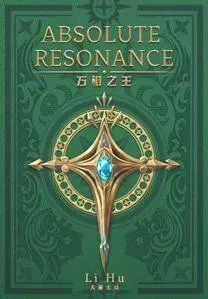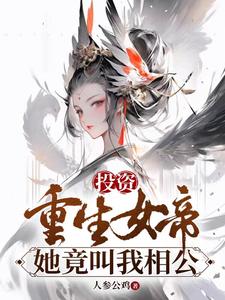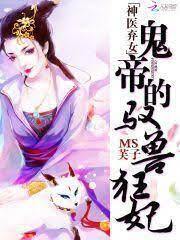The Story in 3 Sentences
A transmigrated gamer, marked for death as mere cannon fodder, cheats his grim fate by exploiting a game-like system to recruit powerful disciples and build his own sect .
He throws out the rulebook of the cultivation world, using meta-knowledge and cunning to turn seemingly impossible missions into stepping stones for his ascent, transforming from a doomed extra into a central powerhouse .
His journey evolves from desperate survival into a grand, often comedic, saga of sect-building and world-shaking confrontations, forever altering the destiny written for him .
Why It Stands Out
1. The Ultimate Meta-Gamer in a Xianxia World
Chen Ming doesn’t just cultivate; he plays the entire cultivation world like a video game. His “Master of Untold Daos” system allows him to see quests, earn merits, and unlock abilities, turning the rigid, deadly serious xianxia genre into a playground for clever subversion. He treats terrifying beasts and ancient experts as NPCs and bosses, applying gamer logic to outwit opponents who rely solely on brute force or orthodox methods. This unique premise injects constant humor and a refreshing sense of unpredictability into every encounter.
2. Disciples as Power Multipliers, Not Just Pupils
The core loop isn’t solitary training; it’s strategic recruitment. Chen Ming’s power grows exponentially through his disciples, each a powerhouse in their own right. The novel cleverly inverts the master-disciple dynamic, where the master’s genius lies in identifying potential and setting his disciples loose, often with minimal direct instruction, to achieve world-altering feats. Their successes directly fuel his own growth and reputation, making sect-building the central, thrilling engine of the plot rather than a side activity.
3. A Comedy of Cosmic Errors and Escalating Shenanigans
Beneath the epic battles and cultivation breakthroughs lies a consistent, often absurd, comedic core. Chen Ming’s flippant attitude towards the world’s dangers, his disciples’ over-the-top reactions, and the sheer ridiculousness of applying game mechanics to ancient cultivation tropes create a uniquely lighthearted tone. The story thrives on misunderstandings, ironic victories, and the protagonist’s constant, cheerful defiance of cosmic expectations, making it a joyful escape from more grimdark fantasies.
Characters That Leave a Mark
There’s Zhuo Qingyao – Chen Ming’s first disciple, whose initial selection set the sect’s foundation and who grows into a formidable legacy disciple capable of driving away fierce beasts .
You’ll meet Ling Xian, who stands alongside Zhuo Qingyao and Li Suyi as one of the core trio of powerful disciples, instrumental in the sect’s early victories and rising fame .
And Li Suyi? They’re the one who, as the third disciple and a fellow reincarnator, brings a unique perspective and formidable strength to Chen Ming’s growing circle .
The Flaws Fans Debate
The cultivation system, while novel, can feel confusing and inconsistent, especially as it applies to the MC and his rapidly advancing disciples, sometimes lacking clear internal logic .
The narrative can become repetitive, falling into a predictable cycle of accepting a disciple, sending them on a mission, and reaping the rewards, which some readers find monotonous over its 1000+ chapters .
Character depth beyond the protagonist is often criticized, with many disciples and side characters feeling more like functional NPCs serving Chen Ming’s goals rather than fully fleshed-out individuals with their own compelling arcs .
Must-Experience Arcs
Ch. 1–50: The Cannon Fodder’s Gambit – Chen Ming, a lowly elder marked for death, stumbles upon his system and makes his first, crucial disciple, Zhuo Qingyao, setting his defiant path against fate in motion.
Ch. 300–400: Legacy of the Untold Daos – The power of Chen Ming’s core disciples, Zhuo Qingyao, Ling Xian, and Li Suyi, becomes undeniable as they undertake missions that shake the region, forcing the world to acknowledge their master’s rising influence .
Ch. 900–1000: Seeds of a New Heaven – Chen Ming’s comprehension of the Dao reaches cosmic levels, forming multiple Dao Seeds and challenging the very foundations of the Heavenly Court, marking his transition from sect master to a world-shaping entity .
Killer Quotes
“Master’s Grace Is a Foot Taller than Heaven.”
“Welcome to the Master of Myriad Daos system, remember to give a five-star rating!”
Cultural Impact
It has garnered a dedicated cult following who appreciate its unique blend of meta-humor and xianxia tropes, often recommending it as a refreshing, “mindless level up” read that delivers on its promises .
The novel is frequently compared to, and recommended alongside, other system-based or meta-xianxia stories like “Library of Heaven’s Path” for its similar comedic and subversive approach .
Despite translation inconsistencies being a noted issue, its core premise and comedic execution have resonated strongly, landing it on numerous reader recommendation lists for its sheer entertainment value .
Final Verdict
Start Here If You Want:
A hilarious, subversive take on the xianxia genre where the hero treats the world like his personal video game.
The satisfying power fantasy of building an empire (or sect) from nothing, powered by cleverness rather than just brute strength.
Fast-paced, episodic adventures with a charismatic, rule-breaking protagonist who constantly outsmarts his destiny.
Study If You Love:
Analyzing how web novels use meta-commentary and game mechanics to deconstruct and refresh traditional genre conventions.
The evolving dynamics of master-disciple relationships in modern xianxia, where disciples are often the primary drivers of plot and power.
The cultural phenomenon of the “transmigrated cannon fodder” trope and its various narrative executions in Chinese web literature.
Avoid If You Prefer:
Deep, intricate character studies and complex emotional narratives, as the focus is squarely on plot and comedy.
Tightly defined, logical magic or cultivation systems, as the rules here are often bent for the sake of the joke or the protagonist’s advantage.
Stories that avoid repetition; the core disciple-recruitment and mission-completion loop is the engine that drives this very long novel.
